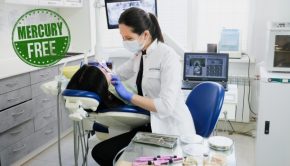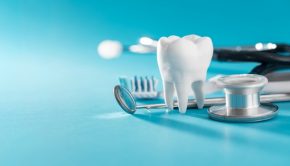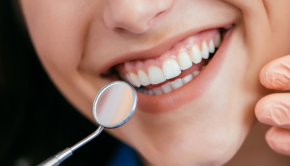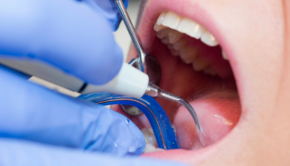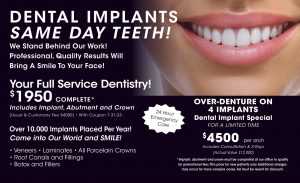Healthy Teeth without Fluoride
There’s a good reason boxes of Crest, Colgate and other major toothpaste brands come with warnings to keep the product away from kids younger than 6 and to call poison control if we swallow more than the pea-sized blob needed for brushing. It’s the fluoride. Science has shown a wide range of its harms to human health, including thyroid dysfunction, lower IQ, cardiac issues, diabetes and more.
Yet because many have come to believe it’s the best defense we have against tooth decay, it gets put into the drinking water of more than 70 percent of the U.S. population, not to mention toothpastes and mouthwashes galore. It’s also delivered through supplements and many brands of sealants and tooth-colored filling material.
Meanwhile, tooth decay continues to run rampant, with 92 percent of all adults experiencing it in their permanent teeth at some point in their lives. Among teens, 59 percent have decay; among younger kids, 42 percent.
Fluoride Benefit Versus Risks
A few years ago, a study was published in the Journal of Dental Research showing that at best, topical fluoride may help slow decay, but not actually prevent it. It’s a finding that raises the important question of whether the benefit is worth the risks fluoride poses to human health.
Of special concern is its toxicity to the brain, especially in children, whose brains are still developing. A recent series of studies by Christine Till and colleagues at York University has confirmed earlier research, persuasively showing that fluoride exposure does appear to lead to cognitive deficits in children. It was sugar industry influence that led mainstream dentistry to embrace fluoride as fiercely as it does. This was documented several years ago by researchers at the University of California, San Francisco. To take a truly preventive approach would mean telling people to quit sugar.
Prevention through Nutrition
By quitting sugar and other refined carbs and starches, we effectively stop decay from developing. Those are the preferred foods of the bacteria that cause decay. Quitting sugar means starving those oral pathogens. But that’s only half the equation when it comes to nutrition. The other is to eat a nutrient-dense diet centered on whole and minimally processed foods. That way, we get the minerals and other nutrients needed to support the ongoing natural remineralization of our teeth, as well as the health of their supporting bone and gum tissue.
In our current food environment, it can be tough to completely avoid added sugars, refined grains and the like. But there are better, safer, more effective things we can do than saturate our teeth and body with fluoride.
Beyond Fluoride
One recent review of the science found that fluoride-free toothpastes that contain hydroxyapatite (HAP) have actually stood up to fluoride pastes when it comes to preventing caries (the clinical term for tooth decay). HAP is the main mineral that makes up tooth enamel.
In vitro and in situ studies are demonstrating promising results of HAP toothpastes on the remineralization of enamel lesions and preventing/reducing demineralization. Specifically, research appears to demonstrate either its superiority or equivalency to fluoride toothpaste as anti-caries agents. And unlike fluoride, it has an excellent safety profile, and may also help with reducing sensitivity and biofilm (plaque) formation.
Evidence suggests that two zero-calorie sweeteners, xylitol and erythritol, may also help maintain a healthy oral environment. It’s not hard to find chewing gum or mints made with one of the two any more.
Many botanical ingredients have likewise proven helpful in controlling harmful bacteria in the mouth, such as cinnamon, clove, eucalyptus, peppermint, lemongrass and more there are various combinations of these in fluoride-free toothpastes. At the same time, oral probiotics can be used to encourage the growth of helpful bacteria that help keep the bad guys in check.
All these are good and helpful things, but number one on the list, if we really want to stop decay from happening in the first place, is to kick the added sugars and refined carbs from our diet, replacing them with nutrient-dense whole foods.
Dr. Vladimir Gashinsky, DDS, is the owner of The Holistic Dental Center of New Jersey and has been in private practice at his Millburn, NJ office for over two decades. For appointments or more information, call 973-457-4244 or visit holisticdentalcenternj.com.



